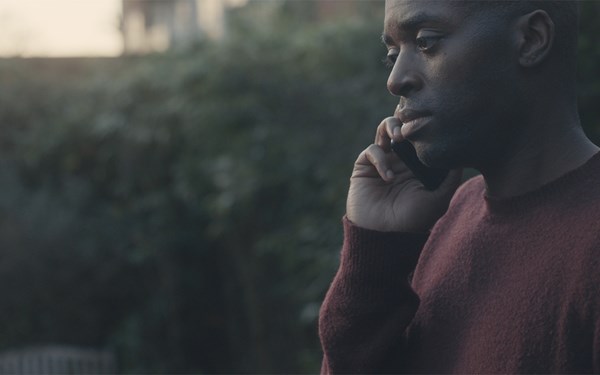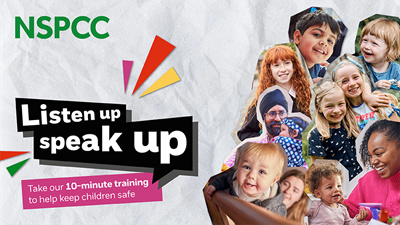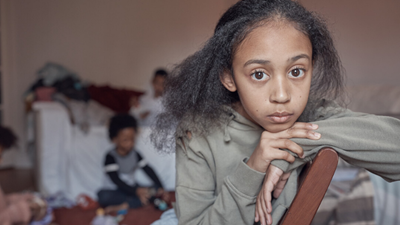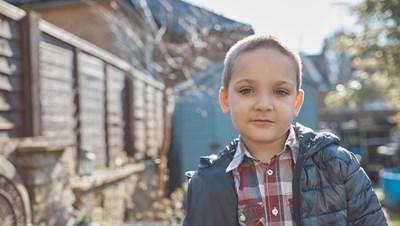If you have any concerns about a child, trust your instincts and contact the NSPCC Helpline. Our specialist team will listen, advise and take any action needed.
An estimated 1 in 20 children have experienced sexual abuse. And child sexual abuse is under-reported by adults. It's time for that to change.
It's never too soon to talk to us. And what you share could make a life-changing difference to a child.
You can contact the NSPCC Helpline by calling 0808 800 5000, emailing [email protected] or completing our report abuse online form.
Our voice Helpline is currently available 10am–8pm Monday to Friday. You can still email [email protected] or complete our report abuse online form at any time for free. If you think a child is in immediate danger, please call the police on 999 straight away.
What happens when you contact the NSPCC Helpline
Our Helpline team are here to support you in a stress-free, comfortable way. Finding out what happens when you get in touch can help put your mind at ease about the process.
A call handler will answer the phone and ask a few basic questions to help them understand your worries. They might also give you answers to any questions that you have. If you’re worried about a child or young person or need parenting advice, they’ll put you through to a child protection specialist.
If you email us or submit our report abuse online form, they’ll prioritise the most urgent queries.
A child protection specialist will listen to your concerns and ask you any questions they might have. This helps to make sure they understand the information you’re sharing, assess the situation, and make decisions about the next steps to take.
If you email us or submit our report abuse online form, they’ll write back to you with advice or some questions. You might be asked to call the Helpline if you can.
When there’s a serious concern about a child and you've shared the child's identity, the child protection specialist will make a report and share information with social services. This is known as 'making a referral'.
They might also contact local police if the child is in immediate danger. If the Helpline don't need to make a referral, they’ll give you advice on what you can do or information on local services.
No matter the outcome of your contact, we always encourage you to get in touch again if you need to. We'll pass on any further information you or anybody else shares about the child or young person you're worried about.
We understand that you might want to know what happens to the child or young person. However, we have a duty to protect the privacy of those involved and won't be able to share that information.
Reporting child abuse anonymously
There are lots of reasons why someone might want to remain anonymous when contacting us. You don't have to tell us who you are, where you live or share your contact details. If you do choose to share any of these with us, you can tell us not to share them with other agencies – like the police or social services.
If we think a child could be at risk, we have a duty to share the information that you give us with other agencies. But we'll respect your wishes about remaining anonymous. If you'd like to find out more about remaining anonymous, please call 0808 800 5000 or email [email protected]
How to contact us
You can contact the NSPCC Helpline by calling 0808 800 5000, emailing [email protected] or completing our report abuse online form.
Our voice Helpline is currently available 11am–3pm Monday to Friday. You can still email [email protected] or complete our report abuse online form at any time for free. If you think a child is in immediate danger, please call the police on 999 straight away.
Calls are free from landlines and most mobiles. All our calls are recorded for training and quality purposes.
Call +44 203 879 8560 if you're living outside the UK but have concerns about a child resident within the UK. Calls from outside the UK will be charged.
As a UK-based charity, we're unable to guarantee that prompt safeguarding action would be taken for concerns reported about children who live in or are nationals of other countries.
If you're worried about a child from another country, the best thing to do is to contact the local welfare agencies or police.
Email us at [email protected]. We’ll aim to respond within 72 hours.
Please share as much information as you can about the child and the concerns you have. If you have any details that can help to identify the child, like their name or address, please share them too.
You can also email us your telephone number and name (or a false name if you prefer), and we'll call you.
If you have a webcam, you can contact us via SignVideo.
SignVideo using British Sign Language (BSL) is available on PC, Mac, iOS (iPhone/iPad) and Android smartphones (4.2 or above).
Once you're connected, a BSL interpreter will appear on your screen. You can explain to the interpreter what your concerns are and tell them that you want to contact the NSPCC. They'll contact us and relay your concerns to one of our child protection specialists.
The child protection specialist will listen to your concerns, assess the information and advise on a course of action. The interpreter will then relay the information and advice given by the child protection specialist to you.
This BSL video service is currently available from 8am–8pm Monday to Friday and 8am–1pm on Saturdays.
We have dedicated helplines that offer advice on specific issues. These include female genital mutilation (FGM), gangs, radicalisation and whistleblowing.





